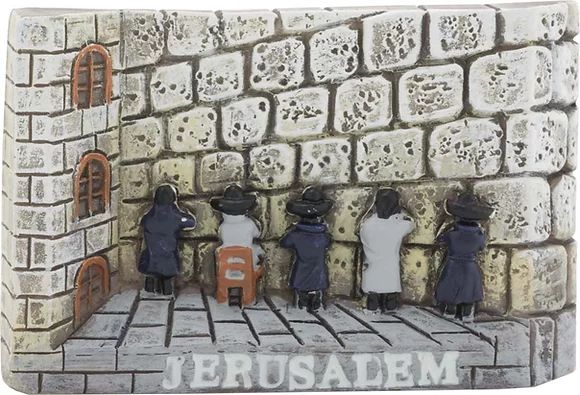
Judge Roy Moore
Former Alabama Supreme Court Chief Justice Roy Moore -“The Ten Commandments Judge” famously lost his battle not only to keep a 2,400-kilogram block of...

Former Alabama Supreme Court Chief Justice Roy Moore — “The Ten Commandments Judge” — famously lost his battle not only to keep a 2,400-kilogram block of Vermont granite bearing the Ten Commandments on the grounds of the state Supreme Court, but also, in the aftermath, his position on the court. He was stripped of his title by a unanimous vote of the court he presided over on November 13, 2003, after refusing a federal court order to remove the monument.
“Roy’s Rock,” as it’s often called, is now permanently perched at a religious school in Gadsden, Alabama.
Since 1995, many groups concerned with religious freedom have been locked in battle with Judge Moore –who also sees himself as a champion of religious freedom– over his insistence on displaying the Ten Commandments in his courtroom and his habit of starting proceedings with a prayer.
Since leaving the bench, Judge Moore now wields a pen as a columnist for WorldNetDaily and is the chairman of the Foundation for Moral Law, a non-profit that fights for religious liberties. He spoke to Breslov Israel by phone from his office in Montgomery, Alabama’s capital.
BRESLEV ISRAEL: Where did you get the courage to wage this battle for faith– and not just for not just the monument, but for the Commandments themselves?
JUDGE MOORE: Well, I look at it less than courage as I do commitment to my oath of office, standing for the truth of the Constitution of Alabama and the Constitution of the United States of America — about the meaning of the First Amendment and the relationship between God and government. So, I don’t look at it as a matter of courage, but as a commitment to my duty.
BRESLEV ISRAEL: How do you kind of foresee the outcome for the minority battle for spiritual reawakening against these broader societal trends, some would argue, involving decadence and spiritual decay?
JUDGE MOORE: Well, I think there’s a religious revival going on, a religious awakening, I should say, going on, that people are coming to an understanding that there is a relationship between freedom and God, and that we’ve lost that understanding. And I think it’s coming back.
BRESLEV ISRAEL: What kind of evidence do you see for that?
JUDGE MOORE: Well, I just see it in the writings and the courts, even. We’ve had a lot of victories of late, understanding that the First Amendment doesn’t prohibit us from acknowledging our faith in God.
BRESLEV ISRAEL: I think I know which court decisions you’re talking about. But which ones do you think are the most notable on that count?
JUDGE MOORE: Well, I think just recently the federal court reversed a ban on prayers in the Indiana House of Representatives, for example. And the Federal Court of Appeals did that. And then we see various reversals in administrative decisions in Washington where I think the House architect had taken the word “Under God” off of flag certificates that were requested from flags flown over the capital. The man’s name was Ayers, I believe, he reversed that. Then they recently had the National Cemetery Administration division of the Department of Veterans Affairs sent out a memo that stopped a 13-point script recitation of the flag folding at burials for veterans, and that was reversed. And I think there was another case where there was a replica of the capstone of the Washington Monument was on display, and they had taken the words “Laus Deo,” or “Glory be to God,” off the description of the replica, and had turned the side where “Laus Deo” is written to the walls so the people couldn’t see it. And after a lot of phone calls and emails and things, they reversed that. They put the description of the monument back and described what “Laus Deo” means, and they moved the monument to the center of the room so that people could see it. So, there are not only court decisions, but administrative decisions that show that people are up in arms about taking away their religious freedom.
BRESLEV ISRAEL: To me, that seems incongruous with what happened in your case. But do you think that your case might have been a bit of a wake-up call, too?
JUDGE MOORE: Well, the federal court decision in my case, yeah, was against that, and I think the case was a wake-up call to a lot of people, because it did address the very issue as, can we acknowledge the sovereignty of a God, of the Judeo-Christian God? And I think that was brought out quite clearly, not only in the judge’s opinion, but in the questioning before the court of the judiciary when I was removed from office. That’s exactly what I was asked, would I continue to acknowledge this God if I continued to hold office? So, it wasn’t about the monument at all, it wasn’t about anything but the acknowledgement of God.
BRESLEV ISRAEL: That’s really interesting. I’m sensing that even the Supreme Court in this country is turning kind of in this direction, too.
JUDGE MOORE: I think so.
BRESLEV ISRAEL: We wanted to ask how you feel about cooperation between different religions and faithful of all religions: What’s your broad view of how our major religions get along and how we move forward?
JUDGE MOORE: Well, in our country, historically and legally, the freedom of religion comes from the acknowledgement that God, the Judeo-Christian God of the Bible, gives us that freedom. So, we’re not to dictate to others as a state or as a federal government what they must believe and what they cannot believe, but we must recognize at the same time that freedom comes from a particular God, and it always has. And we go back to 1931 and 1947, in the case of the US v. McIntosh and Gerard v. United States, where the United States Supreme Court said that our freedom comes from God. They just merely reflected the opinion of Jefferson in his Bill for Religious Freedom and Madison in his Moral Remonstrance, that our religious freedom comes from God. And, therefore, we have many different faiths in America, many different ways of believing, but only because God gave us that freedom and government can’t interfere with it, and that’s what the First Amendment stands for.
The law of God is actually the basis for America, because it says so in the Declaration of Independence.
BRESLEV ISRAEL: Well, it addresses the very core of human nature in many ways, and that’s part of the beauty of the whole thing.
JUDGE MOORE: That’s why the Constitution was written, to restrict the evil nature of man. That’s why we have separation of powers and checks and balances between three branches, so that one branch or one person couldn’t become all-powerful.
BRESLEV ISRAEL: I’m going to ask you a little bit of a political question. What are your thoughts on America’s pressure and influence in Israel, and the overall war against Islamo-fascism?
JUDGE MOORE: Well, I think America should stand with Israel and support its nationhood.
BRESLEV ISRAEL: But they’re in a kind of sticky spot over there.
JUDGE MOORE: That’s an understatement.
BRESLEV ISRAEL: Especially as it relates to what the US is trying to do over there, too. Yeah, it’s a fine line.
JUDGE MOORE: They’re a very small country and they’re in a very precarious station…and I think that we should stand behind them in their status as a nation.










Tell us what you think!
Thank you for your comment!
It will be published after approval by the Editor.